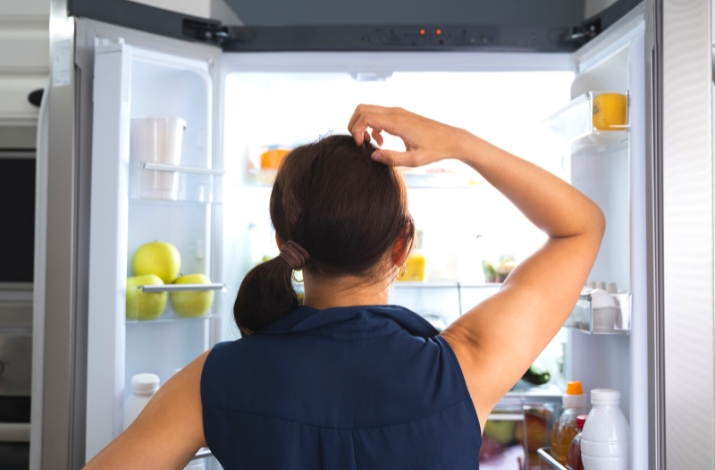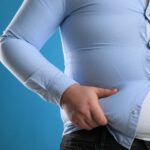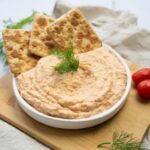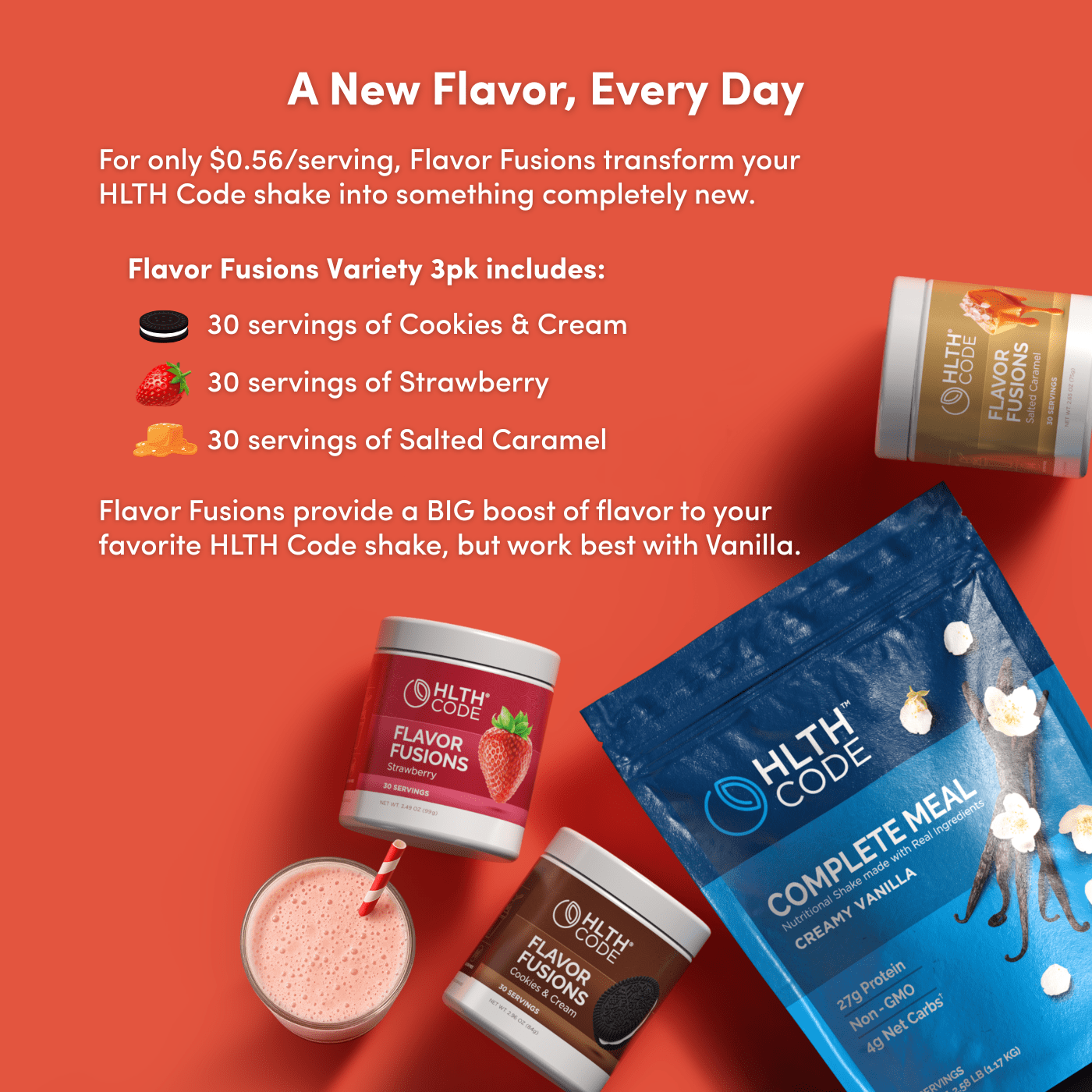What are Hunger Hormones?

What drives people to eat is a combination of psychological and physical factors, including hormones that promote hunger or promote satiety. We all want to be the kind of person who can eat a modest amount of food and be done eating, and understanding the interplay of the various related hormones can help us do that.
Ghrelin
Ghrelin is commonly referred to as the “hunger hormone”[1]. Ghrelin is released from the stomach and tells the brain to stimulate hunger. One of the main stimuli is caused by the stretching of the small intestine and the presence of food passing through. When the intestines are empty, ghrelin is released to signal to the brain that it’s time to eat again. Therefore, part of what stimulates hunger when someone is fasting is the absence of anything passing through the small intestine.
But not all bulk in the intestines is created equal.
In one study, researchers documented the ghrelin response of people who ate a baked potato with different oils [2]. When someone ate fat by itself, ate a baked potato, or ate a baked potato with fat, ghrelin was reduced each time. With the baked potato alone, ghrelin went down, but it increased two hours later, and the levels were higher than they’d been before eating. Fat alone also reduced ghrelin, but it stayed low for up to four hours after eating, and even then, ghrelin was still significantly lower than it had been before eating.
Dietary fat, therefore, reduces hunger.
Leptin
Leptin is often lumped in together with ghrelin as a “hunger hormone,” but it’s more appropriately considered a satiety hormone. Whereas ghrelin promotes hunger, leptin promotes satiety or satisfaction, telling the brain when to stop eating. Leptin is released from fat cells. Thus as a body starts gaining more and more fat, leptin levels continue to climb. This quickly becomes problematic, because as the body is inundated with a hormone, it becomes resistant to that hormone. In the case of leptin resistance, with so much leptin released from fat cells, the hypothalamus will essentially ignore the hormone. The brain then misses the signal to stop eating, which contributes to further weight gain.
In leptin sensitive individuals, leptin inhibits insulin, the hormone responsible for telling the body to store fat. But in the case of leptin resistance, as the pancreas becomes resistant to leptin, it starts pumping out more insulin. This dangerous combination means that people are left hungrier and they store more fat.
Ghrelin to Leptin Ratio
Ghrelin and leptin together have an important relationship and, predictably, the ratio of ghrelin to leptin is a good overall indicator of whether hunger or satiety is dominating an individual’s way of eating. The higher the ratio, the more hunger is winning; the lower the ratio, the more satiety is winning.
A recent study was published that shows the effect of identical meals eaten in the morning and the evening [3]. The study found that when the same foods were eaten in the evening, the ghrelin to leptin ratio was much higher than it was when the exact same meal was eaten in the morning. Another study suggest that meal timing may even lead to better cardiometabolic health [4].
The timing of meals matters to your ability to manage your hunger and your satiety [5]. When people eat in the morning, they’re much more satiated than when they eat the same exact thing in the evening. A little food at night starts to stimulate more hunger, filling you with a stronger urge to eat more. But because hunger and cravings can be habitual, eating late one night can make it that much harder not to eat the next [6].
Takeaways
If you’re looking to control your hunger and feel more satisfied after eating, here are a few tips to help:
Exercise – as counterintuitive as it may sound, exercise can help decrease hunger. If you’re feeling peckish, consider taking a walk rather than looking in the pantry.
-Eat Keto or Low Carb – studies show that being in ketosis (the typical state when eating a ketogenic diet) decreases ghrelin and increases leptin, keeping the ghrelin to leptin ratio low so that people are satisfied after eating more moderate sized meals [7,8].
-Eat Fat and Protein – as previously established, dietary fat helps control ghrelin and promotes satiety. If your hunger is from a genuine need to eat and not from boredom or habit, eating fat by itself will clearly help, but so will protein. Studies show that simply eating protein-heavy meals helps control hunger significantly better than carb-heavy meals can [9].
–Sleep – a single bad night of sleep can double hunger and increase ghrelin the next day [10]. So do what you can to curate healthy sleep habits.
–Timing – as referenced above, shifting your eating window earlier in the day will have a positive impact on the ghrelin to leptin ratio, but additional studies also show that eating earlier versus later can positively affect sleep and cortisol and better fits with a body’s natural circadian rhythm [11,12,13].
References
- Pradhan G, Samson SL, Sun Y. Ghrelin: much more than a hunger hormone. Curr Opin Clin Nutr Metab Care. 2013 Nov;16(6):619-24. doi: 10.1097/MCO.0b013e328365b9be. PMID: 24100676; PMCID: PMC4049314.
- Radulescu A, Gannon MC, Nuttall FQ. The effect on glucagon, glucagon-like peptide-1, total and acyl-ghrelin of dietary fats ingested with and without potato. J Clin Endocrinol Metab. 2010 Jul;95(7):3385-91. doi: 10.1210/jc.2009-2559. Epub 2010 May 5. PMID: 20444922; PMCID: PMC3213865.
- Vujović N, Piron MJ, Qian J, Chellappa SL, Nedeltcheva A, Barr D, Heng SW, Kerlin K, Srivastav S, Wang W, Shoji B, Garaulet M, Brady MJ, Scheer FAJL. Late isocaloric eating increases hunger, decreases energy expenditure, and modifies metabolic pathways in adults with overweight and obesity. Cell Metab. 2022 Oct 4;34(10):1486-1498.e7. doi: 10.1016/j.cmet.2022.09.007. PMID: 36198293.
- Boege HL, Bhatti MZ, St-Onge MP. Circadian rhythms and meal timing: impact on energy balance and body weight. Curr Opin Biotechnol. 2021 Aug;70:1-6. doi: 10.1016/j.copbio.2020.08.009. Epub 2020 Sep 29. PMID: 32998085; PMCID: PMC7997809.
- Davis R, Rogers M, Coates AM, Leung GKW, Bonham MP. The Impact of Meal Timing on Risk of Weight Gain and Development of Obesity: a Review of the Current Evidence and Opportunities for Dietary Intervention. Curr Diab Rep. 2022 Apr;22(4):147-155. doi: 10.1007/s11892-022-01457-0. Epub 2022 Apr 11. PMID: 35403984; PMCID: PMC9010393.
- https://www.health.harvard.edu/blog/how-to-stop-eating-all-that-tasty-but-unhealthy-stuff-202109212597
- Sumithran, P., Prendergast, L. A., Delbridge, E., Purcell, K., Shulkes, A., Kriketos, A., & Proietto, J. (2013). Ketosis and appetite-mediating nutrients and hormones after weight loss. European journal of clinical nutrition, 67(7), 759-764.
- Thio L. L. (2012). Hypothalamic hormones and metabolism. Epilepsy research, 100(3), 245–251. https://doi.org/10.1016/j.eplepsyres.2011.07.009
- Lomenick JP, Melguizo MS, Mitchell SL, Summar ML, Anderson JW. Effects of meals high in carbohydrate, protein, and fat on ghrelin and peptide YY secretion in prepubertal children. J Clin Endocrinol Metab. 2009 Nov;94(11):4463-71. doi: 10.1210/jc.2009-0949. Epub 2009 Oct 9. PMID: 19820013; PMCID: PMC2775646.
- Schmid, S. M., Hallschmid, M., Jauch-Chara, K., Born, J. and Schultes, B. (2008) A single night of sleep deprivation increases ghrelin levels and feelings of hunger in normal-weight healthy men. J Sleep Res. 17, 331-334
- Jakubowicz D, Barnea M, Wainstein J, Froy O. High Caloric intake at breakfast vs. dinner differentially influences weight loss of overweight and obese women. Obesity. 2013;21(12):2504-2512.
- Kahleova H, Lloren JI, Mashchak A, Hill M, Fraser GE. Meal Frequency and Timing Are Associated with Changes in Body Mass Index in Adventist Health Study 2. Journal of Nutrition. 2017;147(9):1722-1728.
- Raynor HA, Li F, Cardoso C. Daily pattern of energy distribution and weight loss. Physiology & Behavior. 2018;192:167-172.
This article is for informational and educational purposes only. It is not, nor is it intended to be substitute for professional medical advice, diagnosis, or treatment and should never be relied upon for specific medical advice.




















